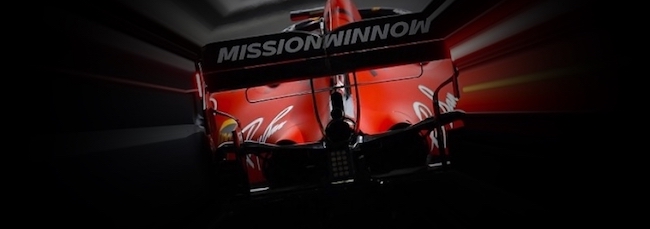In 2019, people complained about Philip Morris International (PMI) paying for a logo to appear on Team Ferrari vehicles. PMI’s chief operating officer Jacek Olczak commented at the Monaco race: “We put Mission Winnow on the car and somebody told us it looks like Marlboro. I said, ‘Look, I think you should go to a doctor, OK?’”
This February, Italian consumer rights group Codacons threatened Ferrari with legal action, claiming the Mission Winnow car logos were an attempt by Philip Morris International to get around a ban on tobacco advertising. It also demanded the Italian government impounded the vehicles when they arrived in the country.
Philip Morris International’s vice-president of communications Tommaso Di Giovanni responded: “This is not the first time it has made such threats. In 2019 a similar complaint filed by the organisation was rejected by the Italian Antitrust Authority as ‘manifestly groundless’.”

Ferrari stated it had no intention of dropping the logos that appeared in 10 of the 21 Formula 1 races last season.
PMI’s “Mission Winnow” is worth £115 million to Ferrari, while McLaren pocket £21 million from the “A Better Tomorrow” partnership with British American Tobacco (BAT).
“Formula 1 racing is one of the most-watched events in the world, with reportedly more than 500 million fans globally. But as the sport celebrates its 70th anniversary, the scale of one of its greatest scandals is only now coming to light,” says STOP.
“By the end of the 2020 season, Formula 1 will have made U.S. $4.5 billion from tobacco sponsorships—one of the last global sports series that still allows tobacco marketing. And because F1 has an overwhelmingly young and affluent fanbase, a new generation is being exposed to highly addictive, harmful products.”
Are they though?

Both companies are driving into the alternative nicotine product market offering reduced harm to consumers, but this isn’t enough to meet the ideological demands of STOP or their funder, anti-vape billionaire Michael Bloomberg.
It’s quite a push to link PMI’s branding to Marlboro packets, and an even further leap to associate the “A Better Tomorrow” logo to any company or product.
The report doesn’t agree: “The branding for PMI and BAT is pervasive, enjoying the most impactful, prominent placements on the cars and driver suits to maximize media exposure.
“For 2020, BAT has considerably expanded its sponsorship of McLaren. Almost double the amount of branding was seen on the cars at the season-opener in Austria, advertising an oral tobacco product, Velo. This expanded branding is worth an estimated $40 million, boosting total annual spending by tobacco companies on F1 to $115 million in 2020.
“The association with a technology-driven sport is valuable to PMI and BAT as they roll out their respective ‘corporate transformation’ narratives. It’s more advantageous for their corporate brands to be associated in consumers’ minds with technology and innovation instead of the less attractive reality of cigarette smoke and tobacco-related disease and death.”
Is it wrong for the tobacco industry to promote its shift into reduced harm products? Should the racing authorities ban something that is currently legal? Why not share your opinions on the Planet of the Vapes forum [link].
Related:
- Mission Winnow – [link]
- A Better Tomorrow – [link]
- “Chevrons, barcodes and arrows: PMI’s continued subliminal promotion of combustible products” by Marita Hefler – [link]
- Driving Addiction: F1 and Tobacco Advertising – [link]
Dave Cross
Journalist at POTVDave is a freelance writer; with articles on music, motorbikes, football, pop-science, vaping and tobacco harm reduction in Sounds, Melody Maker, UBG, AWoL, Bike, When Saturday Comes, Vape News Magazine, and syndicated across the Johnston Press group. He was published in an anthology of “Greatest Football Writing”, but still believes this was a mistake. Dave contributes sketches to comedy shows and used to co-host a radio sketch show. He’s worked with numerous start-ups to develop content for their websites.
Join the discussion
Harm Reduction For The Rich
The United Kingdom risks becoming a harm reduction country only for the wealthy, according to Michael Landl of the World Vapers’ Alliance
CAPHRA Highlights Tobacco Control Flaws
The Coalition of Asia Pacific Tobacco Harm Reduction Advocates highlights the flaws in tobacco control which has led to the rise of black market in Australia
A Missed Opportunity at COP10
The Smoke Free Sweden movement says that COP10 was a missed opportunity to save millions of lives
COP10: Promote Tobacco Harm Reduction
Experts with Smoke Free Sweden are emphasising the urgent need for a Tobacco Harm Reduction approach at COP10












